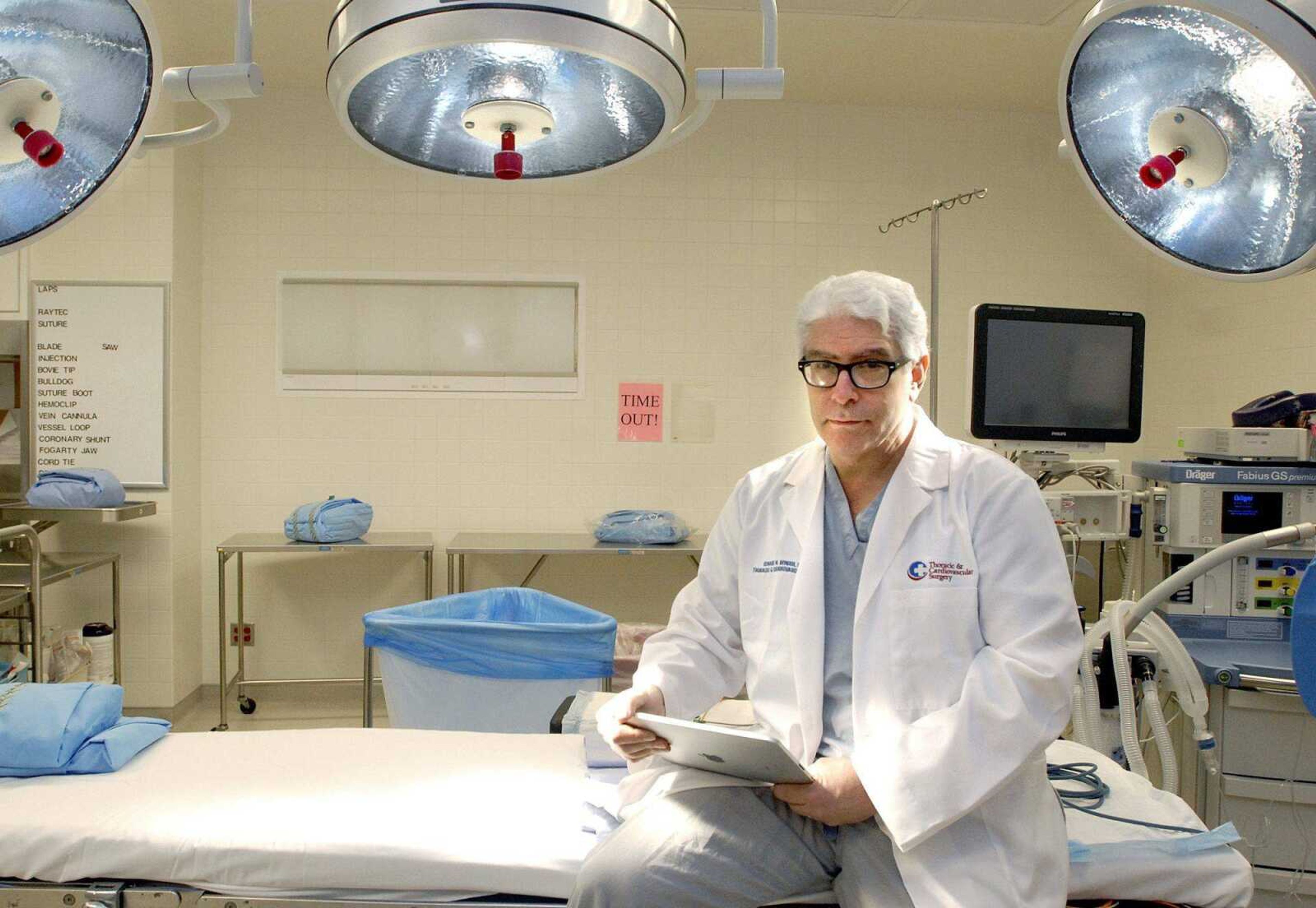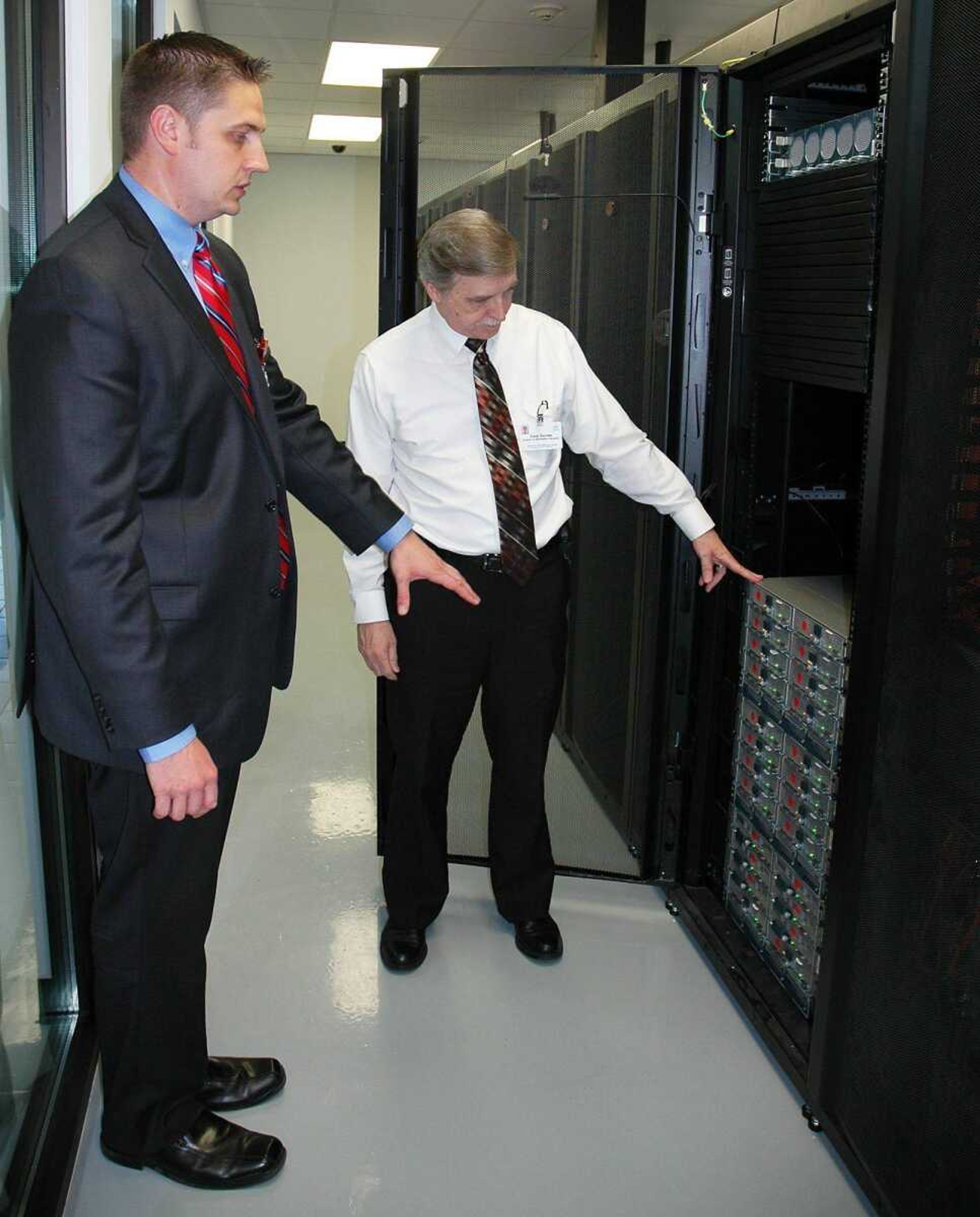High-tech medicine: a look at how technology plays a critical role in medical advances
Whether it's smartphone apps that keep doctors connected to their patients or software to improve record-keeping, technology plays a critical role in medical advances. Here, we look at a couple of those areas: Improving electronic medical records SoutheastHEALTH and Missouri Delta Medical Center in Sikeston, Mo., formed a new company, Servir, to build and manage a common networking and data storage center for both organizations. ...
Whether it's smartphone apps that keep doctors connected to their patients or software to improve record-keeping, technology plays a critical role in medical advances. Here, we look at a couple of those areas:
__Improving electronic medical records__
SoutheastHEALTH and Missouri Delta Medical Center in Sikeston, Mo., formed a new company, Servir, to build and manage a common networking and data storage center for both organizations. They're currently seeking other medical providers to partner with them for data storage as well.
The $3.5 million facility off Silver Springs Road in Cape Girardeau includes a 2,000-square-foot electronic data storage area and training rooms. Its data storage is equivalent to 250,000 CDs.
Over the next year, both hospitals will install a $12 million health information software system called Soarian, said Mike Dozier, regional information officer for SoutheastHEALTH. A fiber-optic cable also now connects Southeast's facilities in Cape Girardeau to the data center and to Missouri Delta Medical Center. Southeast Health Center of Ripley County, formerly Ripley County Memorial Hospital, will convert to the new system in about a year.
The Servir project will receive about $10 million in funding from the federal government. The health care reform law passed in 2010 imposes penalties beginning in 2015 for providers that do not move to electronic records.
"We knew our system wasn't going to get us to where we needed to be," said Jason Schrumpf, president of Missouri Delta Medical Center.
Both hospitals had been investigating new medical records systems independently before partnering in an effort to make the technology more affordable.
"The goal is to improve quality, reduce health care costs and provide a comprehensive system of care through the use of technology," Dozier said.
Physicians will be able to access medical records and test results through secure portals from any computer or smartphone.
For example, if a patient is seen at the emergency room at Missouri Delta and then transferred to SoutheastHEALTH for surgery, the physician can access the patient's record as they're being transported to the hospital, said Gary Gaines, director of information services at Missouri Delta.
~ Melissa Miller
__Smartphones help doctors, patients__

Dr. Edward Bender, a cardiothoracic surgeon at Saint Francis Medical Center, has developed about 20 smartphone apps for physicians.
"They're done for my own specialty," he says, "because that's what I know. (The apps) provide doctors a look at risk quantification for heart surgery. (Surgeons) can track results compared to national benchmarks."
Bender has also developed apps for various specialties to scan medical journals in their field. He says most of what he does focuses on the physician -- 70 to 80 percent of doctors have iPhones, according to Bender -- but that there are also lots of smartphone apps that focus on patients' health. "They're lifestyle, mostly," he says, explaining they track things like exercise and diabetes.
But some hospitals are getting in on the game, too.
"The Mayo Clinic has an app for all patients," Bender says. "They can communicate with their physician and track hospital status, bills, that sort of thing."
Airstrip is another app that could keep doctors connected to their patients, but Bender doesn't expect it to be widely used.
The app is a free download and allows doctors to use their smartphone to monitor their patients in the hospital. The catch? The hospital has to build the infrastructure.
"(Building the infrastructure) isn't a lot of work, but it is a lot of money," Bender says. And with hospitals facing a lot of expenses due to federal health care reform law, their budgets are already tight.
"It would be a convenience," Bender says of the app. "I wouldn't say that it's a game-changer in terms of a patient's life being in jeopardy. It's great technology, but I'm not sure hospitals have the money or the utility (for it)."
~ Heather Collier
Connect with the Southeast Missourian Newsroom:
For corrections to this story or other insights for the editor, click here. To submit a letter to the editor, click here. To learn about the Southeast Missourian’s AI Policy, click here.






